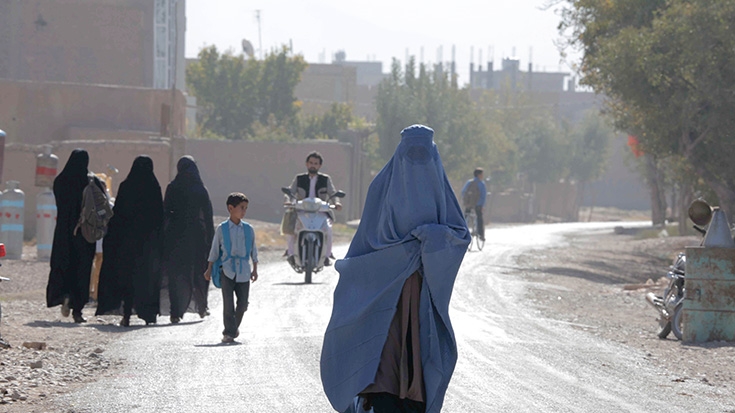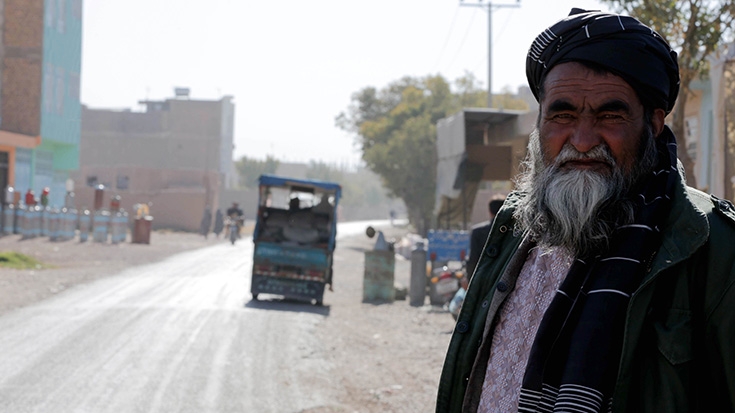Zalmai Azimi, owner of a store located towards the end of Jalwarcha road, close to Herat City, agrees that the double bituminous surface treatment (DBST) road has been good for everyone. His business has been thriving since the road was constructed: “Back in those dusty days customers would not even come close to my shop saying my goods were dusty!”
“Of the 80 to 100 kg of goods we used to bring to the store everyday, some 30 to 40 kg would be wasted due to the dust,” he recalls. “As a result, we had to increase the prices to avoid loss and the people also were obliged to shop from us. As you can see, road construction has even lowered the prices here.
The 13-kilometer Jalwarcha road connects 20 villages and their 40,000 residents in Enjil district, west of Herat City. It was constructed by the National Emergency Rural Access Project (NERAP) under the Ministry of Rural Rehabilitation and Development, with funding from the World Bank and Afghanistan Reconstruction Trust Fund (ARTF). The construction work for the road began in 2009 and was completed in 2010 at the cost of $798,868.
Closed in December 2013, NERAP aimed to enable rural communities across Afghanistan to benefit from improved access to basic services and facilities through all-weather roads. Under NERAP, construction of 1,349 kilometers of tertiary roads and 1,602 linear meters of tertiary bridges was completed in rural areas throughout Afghanistan.
Asphalted road saves lives and time
Shopkeepers and farmers are not alone in enjoying the DBST road. Completion of Jalwarcha road has also brought about some remarkable changes in the lives of the neighboring villagers.
Amanullah, an old man living by this road, recalls the times when they had to travel for hours to take a patient to the nearest healthcare center: “Though motor vehicle transportation was available, the road was too rough to allow a quick and smooth delivery to a hospital. As a result, the patient would die on the way to hospital.”
Tenth grade student Abdurrazaq Haidari, 16, is riding his new bicycle to school, located by the side of Jalwarcha road. He remembers the time when he had to walk to school. “I did not have a bicycle; I would walk. Due to the bad road condition, only 1 out of 100 of us had a bicycle,” he says.
In those days they would go to school at the cost of dusty faces and clothes, and even illness, while that is no longer the case now. Having said that, he gets on his bike storming away to get to school in less than 10 minutes through the same route that used to take him half an hour to traverse.


